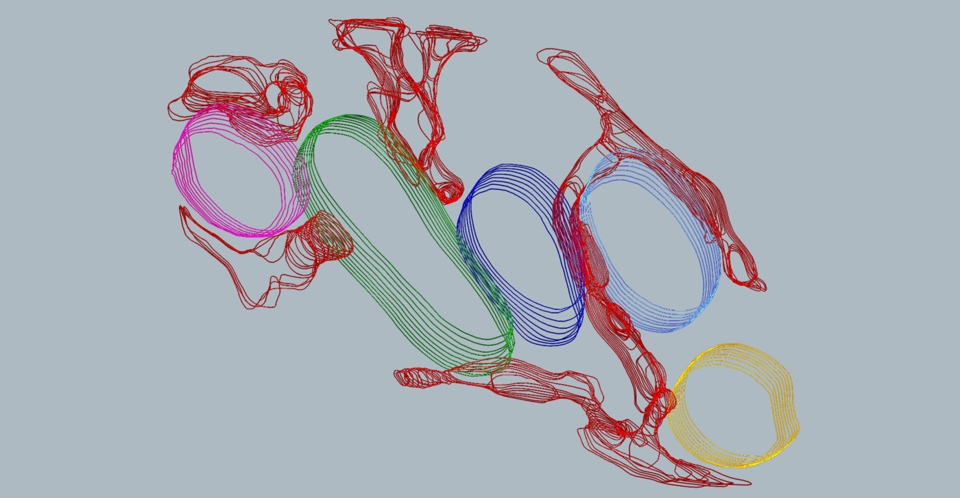Press release of the Leibniz Center Infection from January, 20, 2023-- translated from German
International Symposium of the Leibniz Center Infection
Hamburg. The multiple strategies of infectious pathogens to survive and multiply in the host and how we might use these sophisticated strategies to better fight the pathogens are the focus of this year's symposium "Compartments in Infection" of the Leibniz Center Infection (LCI). On January 26 and 27, 2023, international researchers will gather at the Bernhard Nocht Institute for Tropical Medicine to discuss this topic.
Infectious agents use compartments in the body to escape host defenses and multiply. Each niche, which is essential for the survival of the pathogen, offers potential opportunities for medical agents to attack. It is important to find out how the pathogen obtains nutrients in the compartment and what factors it can use to prevent an immune response. Although the opportunities for drugs to attack are very diverse in practice, the active agents must also enter the pathogen's niche. For example, the effectiveness of antibiotics depends on the type of niche that tuberculosis bacteria inhabit in the cell (presentation by Maximiliano Gutierrez).
The program of the event is diverse: In four thematic blocks, renowned scientists will shed light on the interactions of bacterial, parasitic or viral infectious agents with different niches in human cells. Each thematic block will be introduced by a keynote lecture.
Dr. Tobias Spielmann, head of the research group "Malaria Cell Biology" at the Bernhard Nocht Institute for Tropical Medicine (BNITM) will report on the critical function of the membrane surrounding the malaria parasite in the host cell:
"This membrane is the interface between the parasite and the host cell, through which the parasite transports proteins or gains nutrients. What is interesting for us is that drugs can also reach the parasite through this gateway. This makes the pathogen vulnerable - an important finding for drug development", Spielmann explains.
Prof. Simon Alberti from Technische Universität Dresden addresses biomolecular subunits at the interface between cellular stress, disease and aging.
Dr. Walter Mothes from Yale University, New Haven (USA) talks about imaging techniques to spatially and temporally resolve the synthesis of retroviruses and SARS-CoV-2.
Dr. Maximilian Gutierrez of the Francis Crick Institute London (UK) will explain how the host cell environment influences antibiotic efficacy in tuberculosis.
The program will be complemented by many other contributions related to the topic area: Among other things, the speakers will present new findings on the role of host cell membranes, lysosomes and phagosomes for intracellular infectious agents, on the characteristics of non-membrane-enclosed compartments, as well as on interactions of infectious agents with the cytoskeleton.
"Due to the pandemic, the last LCI symposium had to be held as an online event. Now, we look forward to reconvening in 2023 in the presence of exciting presentations on the role of compartments in infectious diseases. Symposia like this are an integral part of the scientific enterprise and serve not only for researchers to socialize, but also to disseminate new findings to the public," says Prof. Thomas Dobner of LIV, current LCI spokesperson.
"Imaging techniques such as cryoelectron microscopy/tomography with resolution down to the Ångström range can visualize cell compartments in great detail and are revolutionizing infection research by allowing us to identify new mechanisms and targets at the molecular level," explains Prof. Kay Grünewald, head of the LIV research group "Structural Cell Biology of Viruses" and co-organizer of the event.
"For our institute, which deals with bacterial infectious diseases such as tuberculosis, research into the intracellular compartments in which these pathogens replicate is a sustainable approach to identifying new treatment methods," says Prof. Ulrich E. Schaible from the FZB.
Press contact:
Julia Häberlein (Tel.: 040/480 51-108,
Press Invitation:
Members of the press are cordially invited to attend the symposium. There will be an opportunity for separate questions and discussions with selected presenters as well as the current LCI speaker, Prof. Thomas Dobner.
Press briefings on January 26 and 27, 2023, by appointment.
Registration at:
About the Leibniz Center Infection:
The Leibniz Center Infection (LCI) is a dynamic alliance of the Leibniz Institutes Bernhard Nocht Institute for Tropical Medicine (BNITM), Research Center Borstel, Leibniz Lung Center (FZB) and the Leibniz Institute of Virology (LIV). As members of the Leibniz Association, the institutes conduct strategic, topic-oriented research of scientific issues of social relevance. The main purpose of the alliance is to promote the research focus "Global and emerging infections" as a core competence in the northern German science area. The aim is to create a national center of excellence in infection research together with local university partners and major research institutions.
For more information, please visit www.lc-infection.de.


